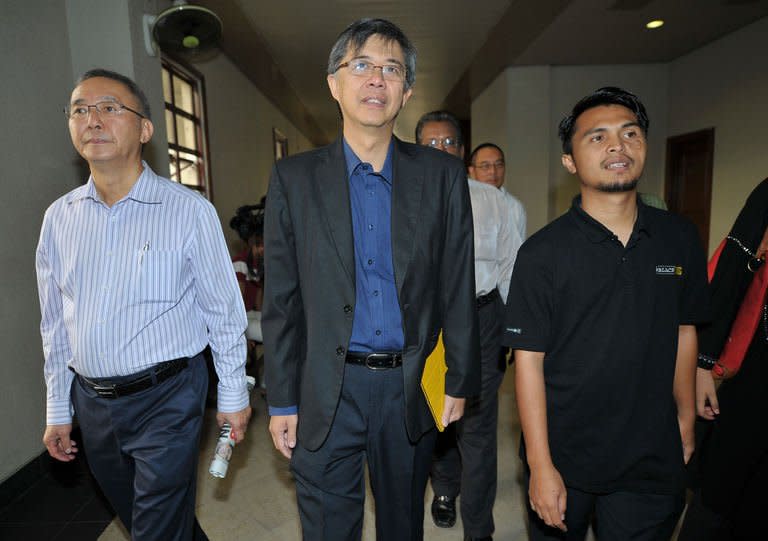Malaysian opposition figures charged with sedition
A Malaysian court on Wednesday charged four people with sedition as part of what critics have decried as a crackdown on accusations that the government cheated to win recent elections. The allegations, repeated in a series of opposition-organised rallies drawing tens of thousands of people around the country, have added pressure on Prime Minister Najib Razak who was already smarting from a disappointing polls win. The four men charged on Wednesday -- opposition politicians Tian Chua and Tamrin Ghafar, and two activists -- pleaded not guilty in a Kuala Lumpur district court. Sedition carries a prison term of up to three years. They were charged with making "seditious" statements by calling for protests against the May 5 elections, Chua's lawyer N. Surendran said. Their comments were made during a post-election public forum. "It's a completely groundless charge. It seems to be punishing free speech," said Surendran, who is also vice-president of the People's Justice Party headed by Anwar Ibrahim. Anwar had led a three-party opposition against the Barisan Nasional (National Front) coalition that has ruled Malaysia since independence in 1957. "This is part of a wider campaign by the prime minister and the home minister to silence opposition to election fraud," Surendran added. The opposition has accused Barisan of illegally enlisting immigrant workers as voters and introducing supposedly indelible ink -- meant to prevent multiple voting -- that washed off easily, among other allegations. Najib has denied any wrongdoing. The opposition has since launched a broad campaign to portray Najib as an illegitimate ruler and force substantive electoral reforms, including a complete overhaul of an Election Commission it says is biased. Another student activist was charged last week with sedition. His arrest provoked candlelight vigils by hundreds of people. Amnesty International and other international groups have condemned the police actions as a crackdown on peaceful expression. The opposition intends to file election petitions to contest the outcome in 27 parliamentary seats, which it says would have given them control of the government if those constituencies went its way. Such petitions rarely succeed. The opposition says courts and the Election Commission are under Barisan's thumb. Barisan won parliament with a minority of the popular vote -- a contradiction blamed on the coalition creating more parliamentary districts in its rural strongholds over the years. The result has sparked speculation over whether Najib could face a coalition leadership challenge.



